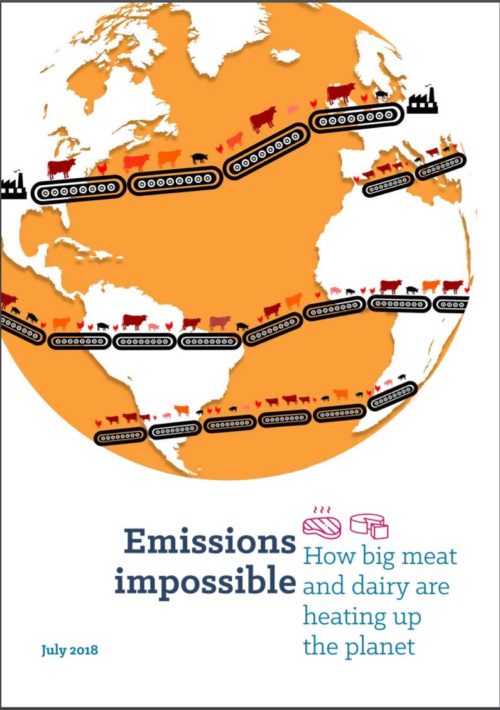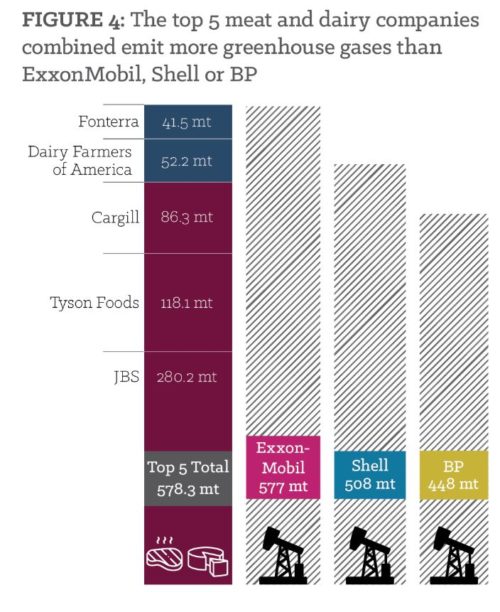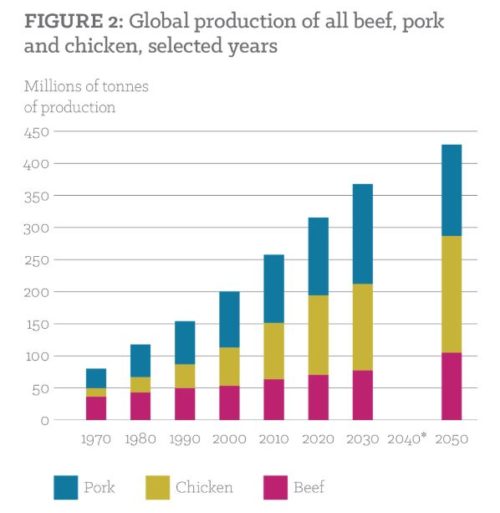Global Meat News on this industry’s sustainability problem
The meat industry is under siege these days over issues of sustainability. The major recommendation of the EAT-Lancet report is to cut consumption of red meat by half in order to reduce greenhouse gas emissions. This is a worry for the meat industry.
This collection of articles indicates how this industry is dealing with the sustainability issue—in some cases, with difficulty, denial, and fighting back.
GlobalMeatNews.com, an industry newsletter, has this Special Edition: Sustainability
In this special edition on sustainability, we look at what the major players in the international meat industry are doing to ensure the future of the sector. We start with quality control plans with Brazilian poultry as well as a massive investment in solar technology by Hormel Foods. We also look at Cargill’s work on reducing antibiotics and a new beef scheme in Ireland.
- ABPA outlines quality control plans for Brazilian poultry sector: In an effort to demonstrate its quality standards, the Brazilian Animal Protein Association (ABPA) recently undertook an in-depth on-site analysis of the poultry meat industry’s facilities, taking food safety, sustainability and animal health and welfare into account… Read
- Hormel Foods to build solar array: US processor Hormel Foods Corporation has started construction on a solar energy project at its Swiss American Sausage Company facility in California… Read
- Cargill’s holistic approach to antibiotic reduction: In an exclusive interview with GlobalMeatNews, Cargill’s food safety and quality lead for poultry Randy Giroux explains how the business is doing its part to reduce antibiotic usage… Read
- Meat diets will be maintained by consumers: The influx of meat alternatives may have led to reports about the demise of the traditional meat industry. However, new research from Cargill has shown that the majority of consumers intend to maintain or increase their consumption of animal protein over the next year… Read
- Green shoots: creating a positive future for meat: Ahead of unveiling its new ‘The Future of Meat is Green’ initiative at the IFFA show in Germany, concept developer Vaessen-Schoemaker spoke exclusively to GlobalMeatNews about its hopes for the scheme and how the meat debate could become a positive one… Read
- Glanbia and Kepak launch beef scheme: Irish processors Glanbia Ireland and Kepak Group have announced a new calf-to-beef pilot programme… Read
- Danish Crown aims to be world producer of sustainable meats: Meat processor Danish Crown has pledged to halve the company’s climate footprint per kilogram of pork by 2030 as part of its sustainability goals… Read
- ‘A major step forward’: Brazil founds trade group for carbon-neutral meat: The newly-formed Brazilian Association of Carbon-Neutral Meat Producers will develop both supply of, and demand for, carbon-neutral meat… Read
- JBS USA to develop global sustainability programme with Brazil: JBS USA has revealed that it is in talks with the businesses division in Brazil to develop a 2025 global sustainability programme following the successful progress of its 2020 goals for the US market… Read
- Register now for sustainable packaging webinar: The packaging and meat sectors have their opportunity to discuss sustainability in the latest GlobalMeatNews editorial webinar… Read
- Industry hits back at red meat consumption report: The international meat industry has hit back at a new report suggesting that red meat intake be halved in order to improve health and ensure a global food system… Read






